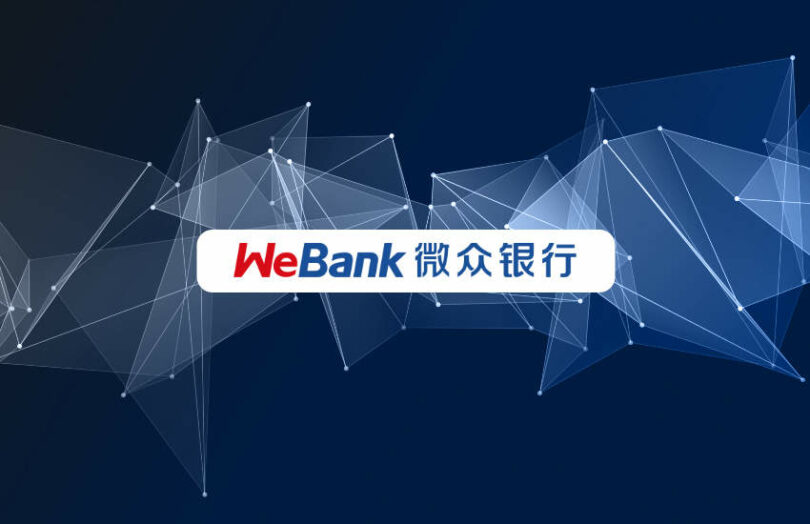At a recent conference in China, a senior WeBank executive spoke about the potential for an “Open Consortium Chain 2.0” to target the opportunities of web3. China doesn’t support cryptocurrency or public blockchains, but WeBank is keen to shift from permissioned consortium blockchains to blockchains “with a public spirit.”
WeBank is one of China’s biggest digital only banks and was founded by Tencent, the owner of the pervasive WeChat app. However, its current stake is around 30%.
Its permissioned WeBank blockchain has processed more than 400 million transactions and averages 300,000 daily transactions, according to the Shenzhen Securities Times. It has 30 or so blockchain applications.
Henry Ma, WeBank’s CIO and EVP, first proposed a “Public Alliance Chain” in 2018. He sees advantages in an open ecosystem in which anyone can participate. However, he acknowledged that those who like public blockchains are not keen on supervision. On the other hand, permissioned blockchains tend to be more efficient and scalable and – in the Chinese context – easier to supervise.
His thinking overlaps with the Hedera and Korean Klaytn blockchains, which have open access. However, large corporates participate in the governing Council, and only Council members control the nodes with permission to write data. That’s no longer the case with Klaytn, and both are taking steps to reduce the Council’s role. Unlike Klaytn and Hedera, WeBank’s Ma is not suggesting using a cryptocurrency.
To transition to greater openness, WeBank will soon enable light nodes to support read-only access to its blockchain.
FISCO BOS in the shadows of Hyperledger
WeBank’s blockchain uses the FISCO BCOS blockchain. In 2017, WeBank contributed its own code to found the open source FISCO BCOS blockchain alongside Tencent, Huawei, ZTE and a hundred other Chinese organizations. From the start, the aim was to be coinless and open to the public. It positioned itself as a challenger to enterprise blockchain Hyperledger Fabric.
WeBank is still actively developing FISCO BCOS. According to Ma, 4,000 organizations use FISCO BCOS across 300 applications.
It was the first blockchain technology supported by the Blockchain-based Service Network (BSN), which also targets a public-like infrastructure. BSN enables SMEs to adopt blockchain in a cost effective manner.
Meanwhile, China continues to develop its high performance blockchain, Chang’an Chain or ChainMaker. It claims to process up to 240 million transactions per secon






